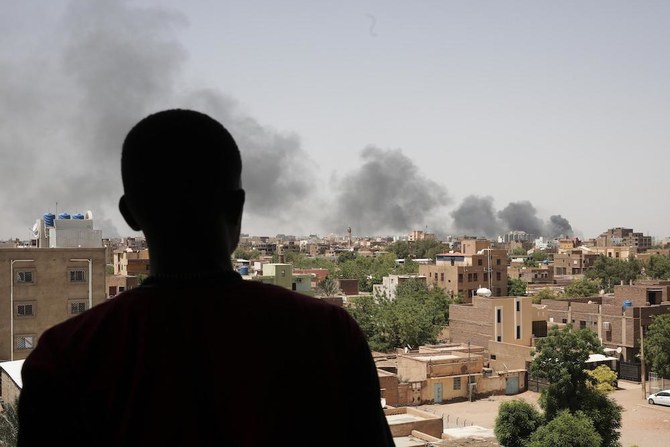JUBA, South Sudan: Daesh, the extremist group that once conquered vast swathes of territory in Iraq and Syria, and today poses a serious threat in Afghanistan and parts of West Africa, has now surfaced in Sudan, where it appears poised to exploit the ongoing conflict.
Speaking to Arab News, Elbagar Elnazir, press secretary to Sudan’s former Prime Minister Abdalla Hamdok, who was removed from power in a 2021 military coup, said there were now multiple Daesh cells operating within Sudanese territory with ties to local Islamists.
Elnazir’s claims are backed up by Mohamed Ali Al-Jazouli, chairman of the State of Law and Development Party, who has confirmed his affiliation with Daesh and alleged coordination with the group to undermine Sudan’s framework agreement to transition to civilian-led democracy.
Of particular concern is the reported cooperation arrangement between Daesh and the Muslim Brotherhood, aimed at exploiting Sudan’s turmoil to further their own Islamist political agendas — a move experts fear could threaten wider regional security.
Elnazir points to Egypt as a potential entry point for Daesh infiltration into Sudan, along with neighboring countries such as Libya, Somalia and Chad. Recent Daesh attacks on the Sinai Peninsula highlight the group’s capacity for violence, necessitating heightened vigilance.
“They are looking to take power, and there are many reasons on the ground to make them believe they will be accepted by the people,” Elnazir said.
The spread of violence between the Sudanese Armed Forces and the paramilitary Rapid Support Forces, which began on April 15 and has spiraled into a major humanitarian emergency, provided the perfect cover for Daesh infiltration.
Having been suppressed with the help of US intelligence agencies during the rule of Omar Bashir, prior to his overthrow in 2019, Daesh cells have since been free to stage a resurgence in Sudan.
In one raid alone in the capital Khartoum in 2021, Sudanese special forces located and neutralized five Daesh militants. Now, amid the violence in Sudan, which shows little sign of abating, Daesh cells are free to secure a foothold, unmolested by security forces.
The violence in Sudan has caught the attention of pro-Daesh outlets on Telegram, which perceive the situation as an opportunity to discredit their rivals, including other jihadist groups and regional governments.
Daesh has a history of forging alliances with local militant factions. By providing financial resources, weapons and ideological guidance, Daesh can strengthen these groups’ capabilities and enable them to carry out more frequent and devastating attacks.
This support not only threatens Sudan’s stability but also raises the potential for spillovers into neighboring countries owing to the porous nature of regional boundaries.
With Sudan serving as a breeding ground for militants, there is a significant risk of these individuals crossing into neighboring countries to carry out attacks or propagate radical beliefs.
Daesh’s tactics also often involve the exploitation of existing sectarian divisions, further undermining national cohesion and security.
“The power struggle between various ethnic and religious groups has created divisions that extremist organizations like Daesh can exploit,” Cameron Hudson, a former CIA intelligence analyst, told Arab News.
Furthermore, the lack of effective governance and control in certain regions of Sudan provides opportunities for Daesh to establish a presence and recruit and train militants within the country.
“Without effectively managing the conflict, various fundamentalist groups will find fertile ground to recruit disaffected individuals amid the chaos,” Mukesh Kapila, the former UN resident and humanitarian coordinator for Sudan, told Arab News.
















